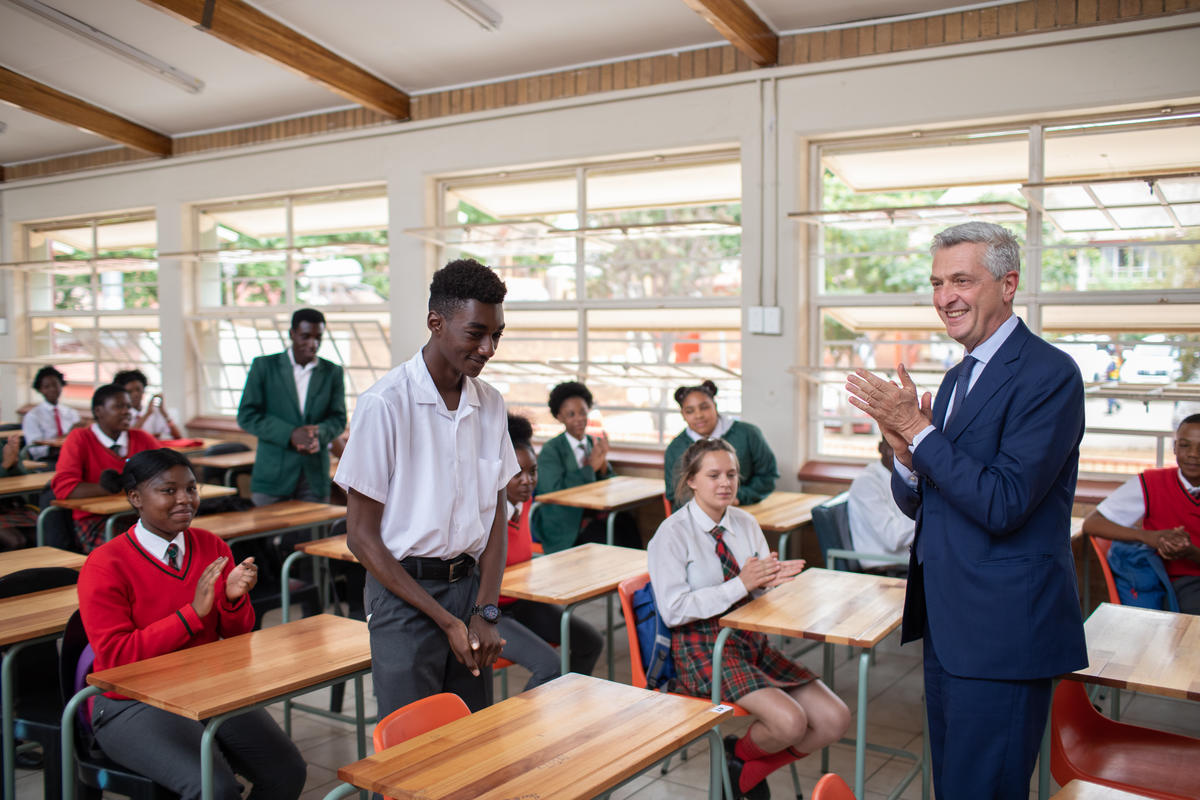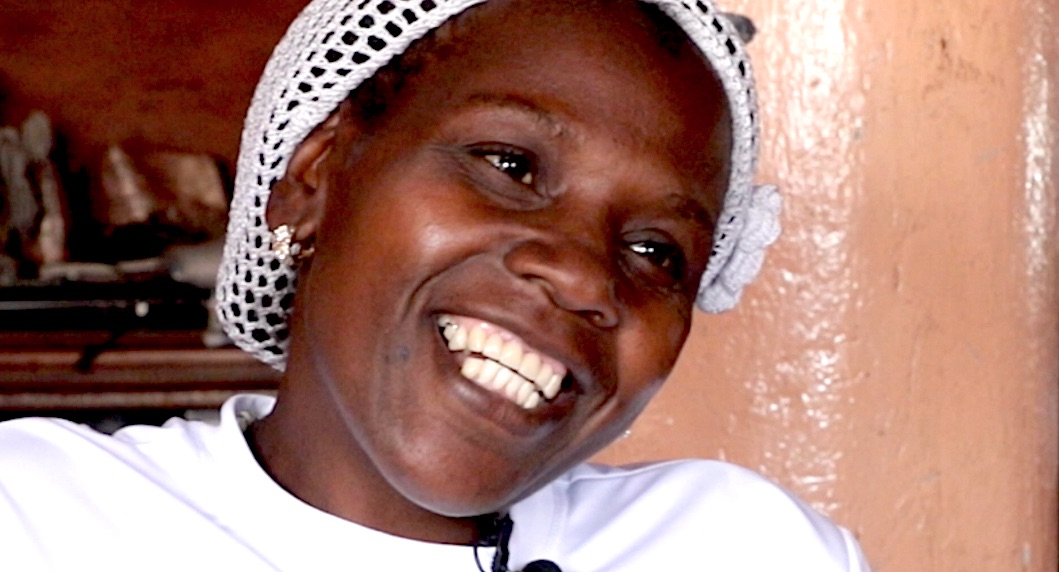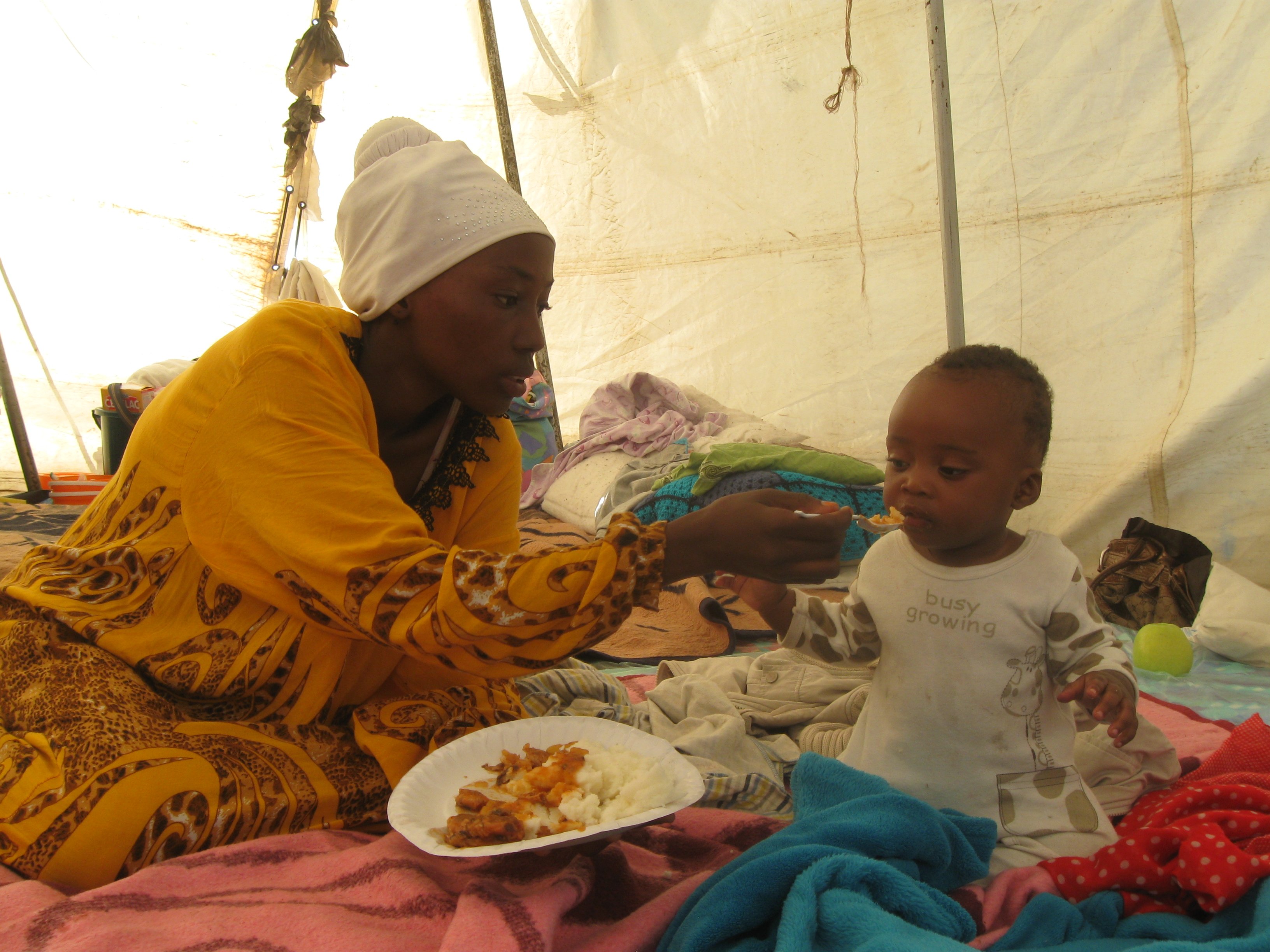Displaced foreigners prepare to vacate temporary shelters as deadline looms
Displaced foreigners prepare to vacate temporary shelters as deadline looms

JOHANNESBURG, South Africa, August 14 (UNHCR) - As the deadline draws closer for the closure of temporary shelters set up by the Gauteng provincial government in South Africa for foreigners displaced in recent xenophobic attacks, Gloria*, a Zimbabwean asylum seeker, is still unsure where she will go. The Rifle Range temporary shelter in Johannesburg, which has been her home for the last two months, is expected to be shut down tomorrow.
Authorities say all six temporary shelters housing some 6,000 migrants, refugees and asylum seekers in Gauteng province will be dismantled on August 15.
"I have sleepless nights thinking about this," Gloria confides. "I just don't know what I'll do come Friday." Spare of frame and fragile looking, she has been referred to a local hospital to seek medical attention for depression.
Her current state is a far cry from her life of affluence before Zimbabwe's political and economic turmoil. Her husband's two university degrees and well-paying job kept her and their two sons accustomed to a comfortable lifestyle. But he was also an activist for the opposition Movement for Democratic Change (MDC), and was murdered in 2005.
Since then, Gloria has had to fend for her young family and HIV-positive mother. They fled to South Africa and initially stayed at a women's shelter in Johannesburg. But they overstayed their welcome and Gloria was driven into the arms of an abusive partner. Her two-year-old daughter is what's left of the liaison, which she now puts down to an attempt at finding solace and security as a respite to the daily slog of ensuring a roof over her family's head and food on their table.
"Having to start (life) over in a new country, with no place to stay, moving to a shelter when I was the madam of my own house back in Zimbabwe, is like losing everything including my identity," she says. "Now I'm just a number on an asylum-seeker permit."
The UN refugee agency in Pretoria is supporting all asylum and undocumented Zimbabweans like Gloria who would like to reintegrate into local communities through an assistance programme implemented by its partner, the Jesuit Refugee Service (JRS). The non-governmental organization is conducting individual and family needs assessment exercises aimed at providing limited financial support to refugees and asylum seekers. Gloria has been granted 1,500 Rand (over US$192) under this programme.
"The assistance is for a period of two months, after which we expect people to be on the road to re-establishing themselves and their livelihoods," explains Irfan Adil, UNHCR's Associate Programme Officer. "However, the most vulnerable can still approach our partners for a re-assessment of their situations and based on its outcome, may be eligible for further assistance."
Gloria understands that she and her family cannot remain permanently at the temporary shelter. The provincial authorities made it clear right at the outset that these shelters were temporary.
"UNHCR provided us shelter and the government has fed us for two months. It is time to move on but I just need a little more time get my plan in place," she says desperately.
With no options left, Gloria intends to visit her local pastor to ask him to place her sons in the church's boys' home just until she can find a place for all of them to be together again.
"That will be very difficult as my eldest son, who turns 13 this year, blames me for our predicament," she remarks. "He doesn't realize that the direction our lives have taken is the result of the political situation back home."
Like many Zimbabweans abroad, Gloria is hopeful that the power-sharing talks currently underway between ZANU-PF (Zimbabwe African National Union-Patriotic Front) and the opposition MDC in Zimbabwe will bring peace and stability to her homeland. "I miss home terribly," she says, "we all do."
Even when she and her family eventually return to Zimbabwe, Gloria knows that life will be difficult as she will have to start from scratch. These are the thoughts that help her through some of her most difficult moments, but right now she is forced to put aside any dreams of returning home - tomorrow is only a few hours away.
* Name changed for protection reasons
By Pumla Rulashe in Johannesburg, South Africa








